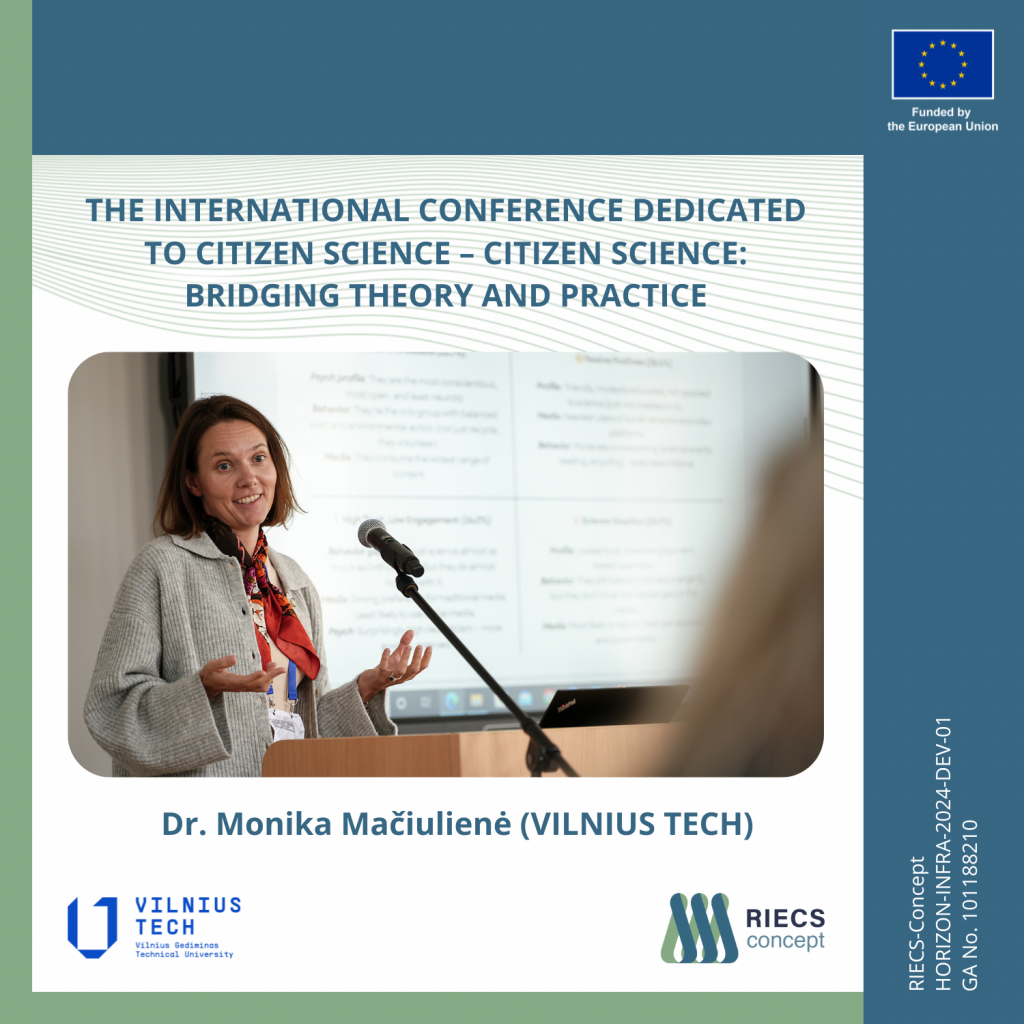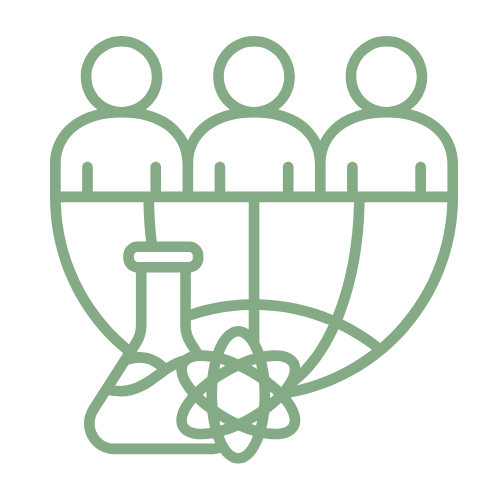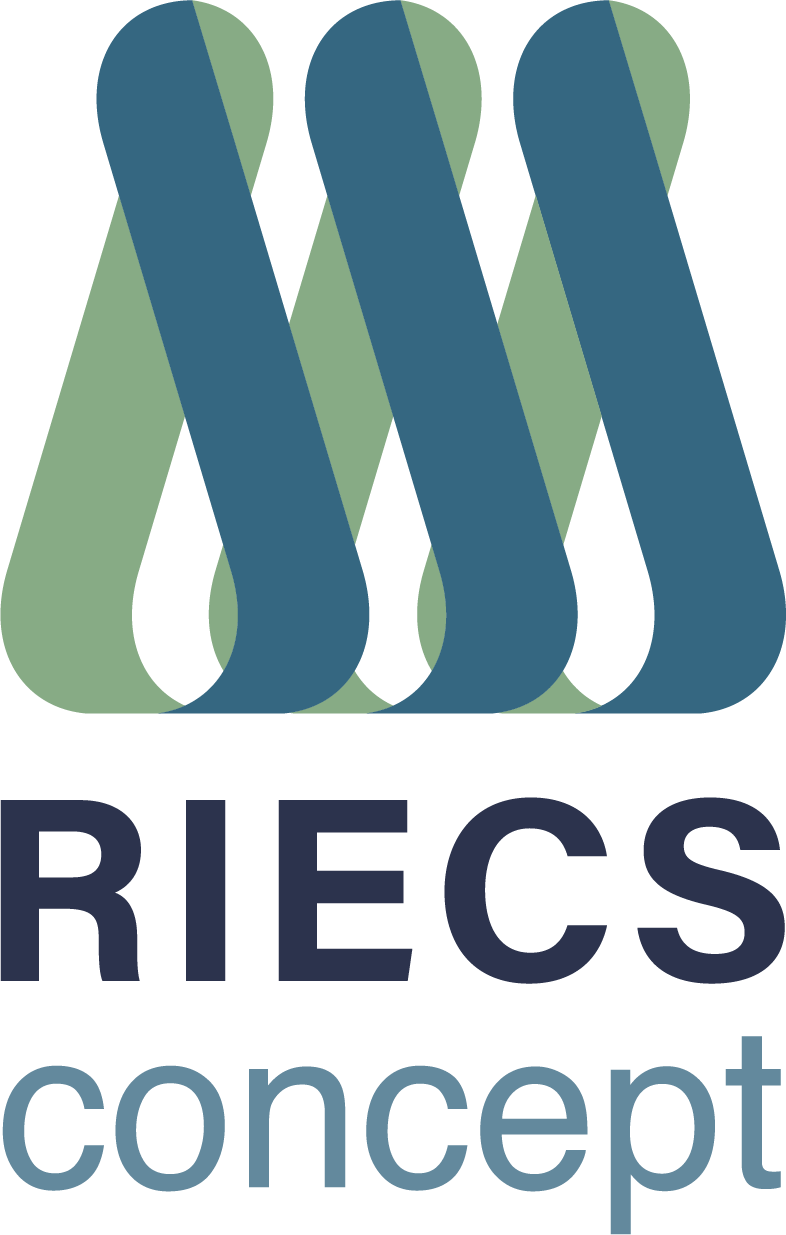Theory Meets Practice: Citizen Science Conference Brings Together Researchers and Communities in Vilnius

On April 29, the first international conference dedicated to citizen science – Citizen Science: Bridging Theory and Practice – took place at Vilnius University’s Scholarly Communication and Information Centre. The event was moderated by Dr. Monika Mačiulienė, representing the RIECS-Concept project at VILNIUS TECH University.

Participants
The conference gathered researchers, practitioners, librarians, policy-makers and students from Lithuania and abroad. Sessions focused on current developments in citizen science, challenges of implementation, and the role of public engagement in scientific processes. Participants were introduced to international cases and methodologies highlighting how citizen science can be embedded in institutional, technological and policy frameworks.
- Anne Kathrine Overgaard and Thomas Kaarsted from the University Library of Southern Denmark presented the role of libraries as infrastructure and support centres for citizen science projects, illustrating their approach with concrete examples of institutional engagement and community impact.
- Gintaras Jonaitis (VILNIUS TECH) discussed the use of gamification in engineering research as a tool for increasing participation and encouraging innovation.
- Prof. Dr. Eglė Butkevičienė (Kaunas University of Technology) outlined the components of the citizen science ecosystem, from institutional frameworks to political and technological conditions, stressing the importance of cross-sectoral collaboration.
- Dr. Etienne Serbe (LMU Munich & Max Planck Institute for Biological Intelligence) introduced tools designed to bring neuroscience research into public settings, enabling non-specialists to take part in data collection and experimentation outside laboratory environments.
- Dr. Giedrė Godienė (Vilnius University) presented a participatory GIS mapping approach that not only facilitates local data collection but also strengthens community identity and belonging through collaborative spatial practices.

Citizen Science
The conference demonstrated that citizen science initiatives, regardless of their thematic or methodological differences, are often driven by a shared motivation among researchers and practitioners to involve the public in meaningful ways. The ideas and tools discussed offered valuable insights that could inform the development of citizen science within the Lithuanian research and policy system.
Published: 2025-05-29
